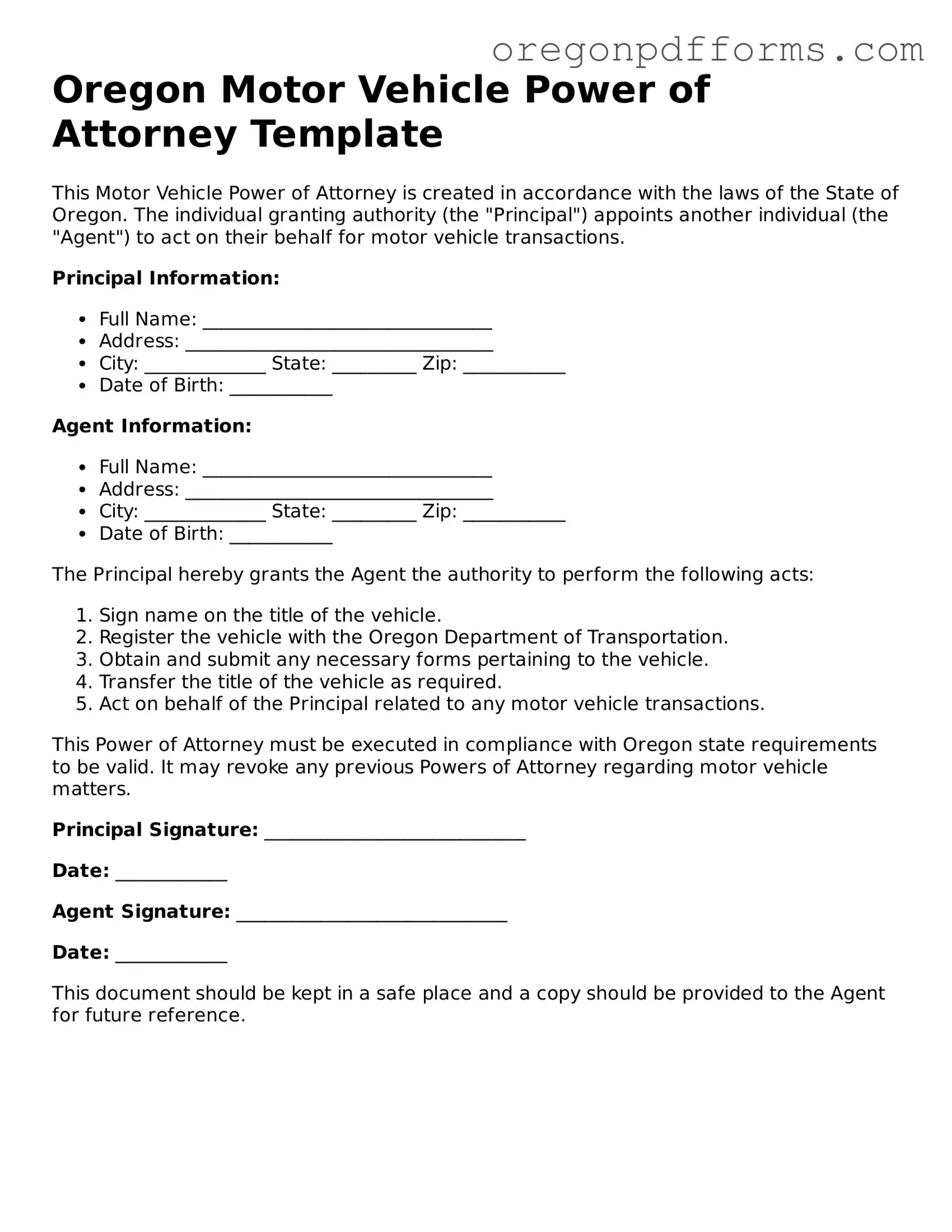The Oregon Motor Vehicle Power of Attorney form is a legal document that allows one person (the principal) to authorize another person (the agent) to act on their behalf regarding motor vehicle transactions. This can include activities like transferring ownership, registering a vehicle, or obtaining a title. Essentially, it grants the agent the authority to handle specific motor vehicle-related matters as if they were the principal.
Any individual who owns a motor vehicle and is capable of granting authority can be a principal. This includes adults who are of sound mind and legally able to make decisions. It’s important that the principal understands the powers they are granting to the agent.
Who can be appointed as an agent?
The agent can be any person the principal trusts to act on their behalf. This could be a family member, friend, or even a professional, such as an attorney or a car dealership representative. The key is that the agent should be someone who is responsible and reliable, as they will be handling important transactions related to the vehicle.
The agent can perform various actions related to the motor vehicle, including:
-
Transferring ownership of the vehicle.
-
Registering the vehicle with the state.
-
Obtaining a duplicate title.
-
Signing documents related to the vehicle on behalf of the principal.
However, it’s crucial for the principal to specify any limitations or specific powers within the form to avoid misunderstandings.
To complete the Oregon Motor Vehicle Power of Attorney form, follow these steps:
-
Download the form from the Oregon DMV website or obtain a physical copy.
-
Fill in the required information, including the names and addresses of both the principal and the agent.
-
Clearly outline the powers being granted to the agent.
-
Sign and date the form in the presence of a notary public, if required.
Make sure to keep a copy for your records and provide a copy to the agent.
While notarization is not always mandatory for the Oregon Motor Vehicle Power of Attorney form, it is highly recommended. Having the document notarized adds an extra layer of authenticity and can help prevent disputes about the validity of the form later on. Always check the specific requirements based on your situation.
How long is the Power of Attorney valid?
The Oregon Motor Vehicle Power of Attorney remains valid until the principal revokes it or until the specific transaction is completed. If the principal wishes to terminate the authority granted, they should do so in writing and notify the agent immediately. It’s wise to keep track of any changes to ensure that the agent is acting under the correct authority.
What should I do if I need to revoke the Power of Attorney?
If you need to revoke the Power of Attorney, you should create a written notice of revocation. This document should clearly state your intention to revoke the authority granted to the agent. After completing the notice, provide a copy to the agent and keep a copy for your records. It’s also a good idea to inform any institutions or entities that may have been relying on the original Power of Attorney.

